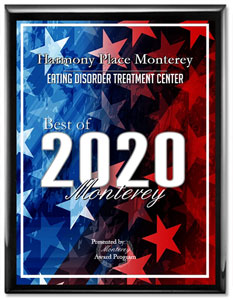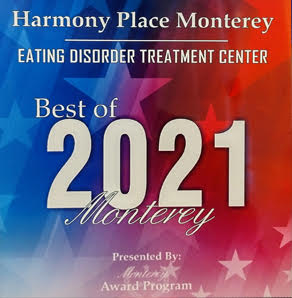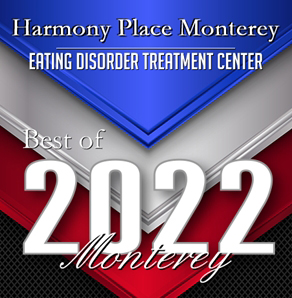Sexual Dysfunction and/or Compulsivity
The Harmony Place Monterey Recovery Program, including Intensive Outpatient Therapy and Transitional Living Options
Sexual Dysfunction is considered a problem when:
- Sex or thoughts of sex are a primary, continual focus
- Sex is both necessary and distressing
- Sex is out of control and the person is acting outside their value system
- Sex is interfering with establishing a healthy, intimate relationship or marriage
- Sex has interfered with working, such as browsing Internet pornography while on the job or an inability to concentrate without becoming distracted with thoughts of sex, or the planning to engage in sex or sexual stimuli
- Sex or thoughts of sex are obsessive or compulsive

Photo by Bianka Csenki
What Causes Sexual Dysfunction or Sexual Compulsion?
In our decades of experience, we have found that any type of addictive behavior is an indication that one’s life is out of balance. There are multiple reasons that a sexually addictive, sexually dysfunctional behavior shows up:
- Anger or rage that was suppressed, related to powerlessness experienced in childhood
- Depression or anxiety is getting effectively relieved by distracting oneself with sex
- Fears related to relationships and intimacy are not processed
- Attachment issues are prevalent, where an individual finds that they can neither stay in nor leave a relationship
- The lacking of the skills required to effectively navigate the world because of social anxiety, obsessive-compulsive perfectionism, bipolar-like mood changes, and so on…
- There are unfinished, unresolved issues from childhood, often caused by some sort of trauma in the family of origin
Sexually Compulsive Behavior
Sexual compulsivity is a disorder of intimacy and is most often a result of a history of complex trauma (multiple overlooked childhood experiences that are difficult to integrate.) In such cases, the therapy focus includes trauma integration. For other clients, the couple needs to change the structure of their marriage to include more passion, fun and creativity. Marital therapy, even when the compulsive issues pre-dated the marriage, is an essential component. The solution to sexual compulsivity is rarely simple, and the individual needs to be committed to an intensive phase of therapy with outpatient follow-up.
Sexual compulsivity (also called sex addiction) has become an epidemic since pornography became easily accessible on the Internet, where it can easily be viewed anonymously 24 hours a day. Tolerance can build, requiring more hours and various types of pornography for satisfaction. As sexually addictive behavior increases, genuine, heartfelt human relationships becomes less frequent and intimacy is displaced. Online pornography or other outlets used to satisfy sexual compulsivity becomes feared and resented by the addict’s partner (if applicable) who can feel ignored and betrayed.

Photo by Bianka Csenki

Photo by Ronald Cuyan
Treatment Process for Sexual Compulsivity
Treatment begins with a thorough assessment. Sexually addictive behaviors can be widely divergent, so understanding each individual’s proclivity and background is vital. Interventions and treatment plans are based on a complete delineation of the contributing factors.Treatment for sexually compulsive behavior usually begins with abstinence. The individual most often will need to learn how to deal with emotions such as loneliness, sadness and anxiety in more effective ways. Sometimes a major psychiatric disorder underlies the problem. For a subset of clients, sexual arousal patterns may be atypical; the desire is not felt for a person they would find physically attractive and for whom they might feel affection.
Treating the Partner Too…
At Harmony Place Monterey, we work with the individual as well as the partner, as well as the coupleship (as applicable). For out-of-town clients, we offer an Intensive Outpatient Program (IOP) consisting of three hours of daily treatment that includes individual and couples therapy plus group therapy. Participation in a 12-step program is also encouraged between therapeutic sessions. If co-dependency is an issue, special treatment for the identified client or partner is available.
Paraphilia/Gender Confusion
Individuals sometimes develop atypical sexual arousal patterns (paraphilias) that can interfere with healthy intimacy when in a relationship, when part of a couple. Examples include: fetishes, transvestism, preferences for violence or abuse, humiliation or shaming, and so on. In our experience, these paraphilias are often tied to childhood trauma caused by neglect. We also work with issues related to gender confusion and any level of dissatisfaction with one’s sense of self and intrapersonal identity.ltation
Contact us for a confidential consultation at Harmony Place Monterey. It would be a pleasure to learn more about where you are, and where you may want to go from any sexual disorder you may be suffering from. From coaching to taking part of our sexual disorder treatment to enhance your development of Executive Functioning Skills to helping you discover what’s determined to be expressed from within, let us assist you in taking whatever necessary next steps are available to you, your partner, your family member or your loved ones.





